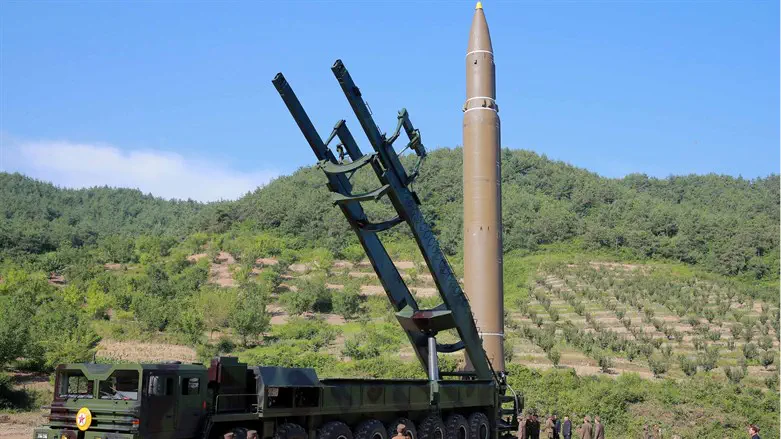
North Korea fired a short-range ballistic missile Thursday, Seoul's military said, in Pyongyang's latest show of force just days before South Korea and the United States kick off major joint military exercises, AFP reported.
Pyongyang's KCNA news outlet said hours later that leader Kim Jong Un was on the ground to witness "a powerful volley" by an artillery unit "ready to respond to actual war".
The report did not specify what weaponry Kim observed in the "fire assault drill" simulating the destruction of an enemy airport.
Seoul's Joint Chiefs of Staff said that it "detected the launch of one short-range ballistic missile from the North's western port city of Nampo at 6:20 p.m. (0920 GMT)".
It added it was analyzing "the possibility that North Korea fired multiple short-range ballistic missiles from the same region simultaneously".
"Our military maintains a full readiness posture while closely cooperating with the US as we have strengthened surveillance and vigilance," it said.
The North has upped the volume of its ballistic missile tests in recent months. The country tested dozens of ballistic weapons in 2022, including its first intercontinental ballistic missiles since 2017.
In January, North Korea fired a short-range ballistic missile toward its eastern waters. Kim later ordered the development of new intercontinental ballistic missiles and massive production of tactical nuclear weapons to counter threats from the United States and South Korea.
In mid-February, North Korea tested a Hwasong-15 intercontinental ballistic missile (ICBM) in a “surprise launching drill” under the written orders of leader Kim Jong Un. Days later, it test-fired four strategic cruise missiles during a drill designed to demonstrate its ability to conduct a nuclear counterattack against hostile forces.
North Korea has bristled over US-South Korea military exercises, describing them as rehearsals for an invasion.
Earlier this week, it accused the US of "intentionally" ramping up tensions, and Kim's powerful sister warned that if the US were to intercept one of Pyongyang's missile tests, it would be seen as a "clear declaration of war".
